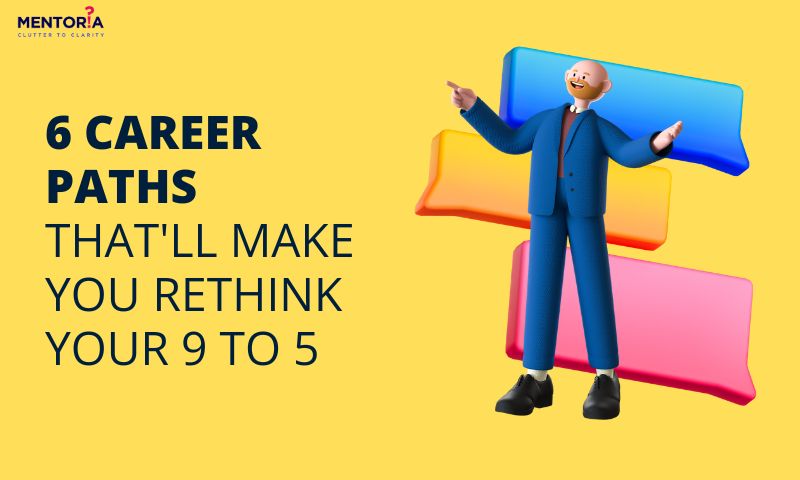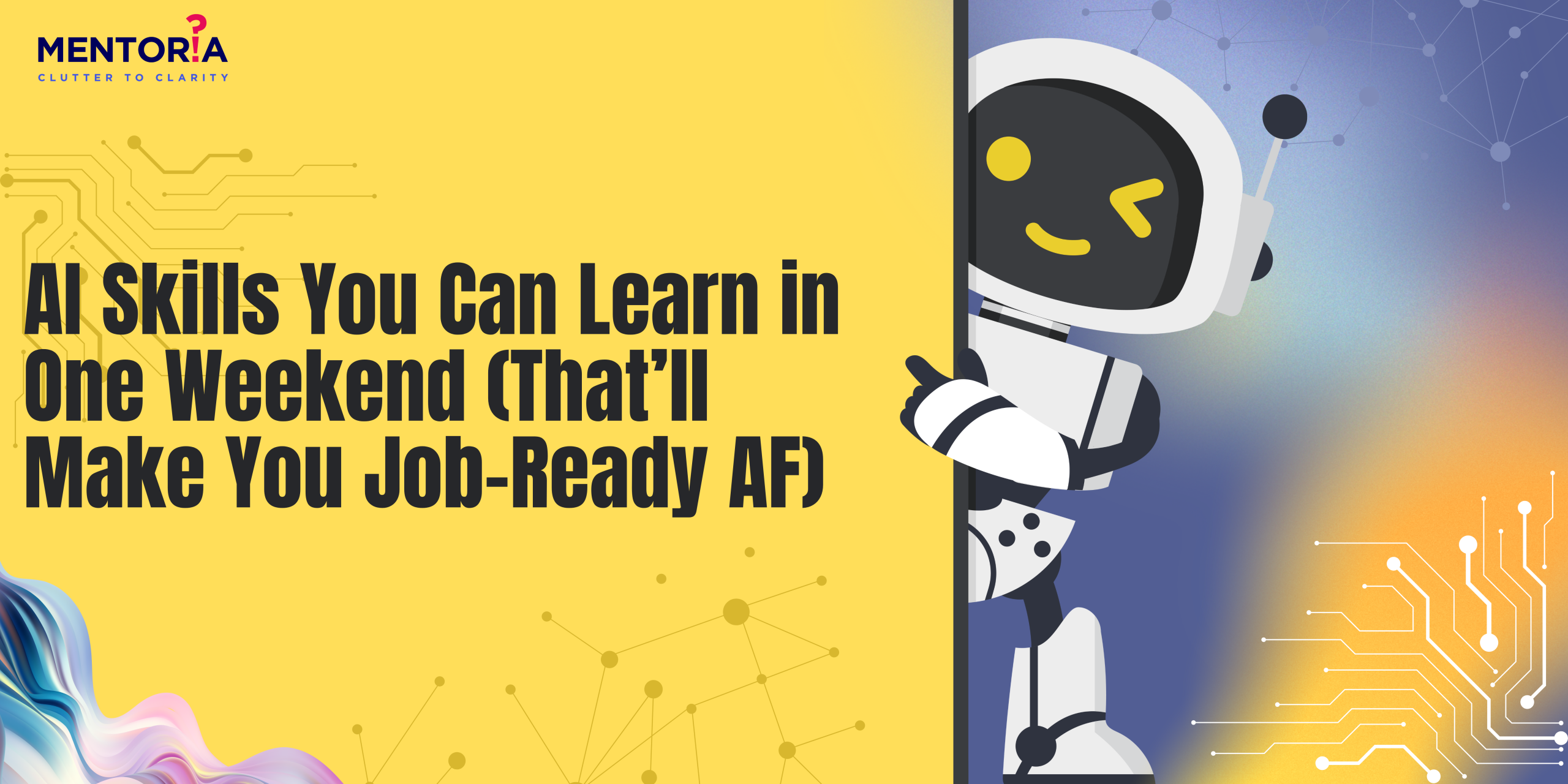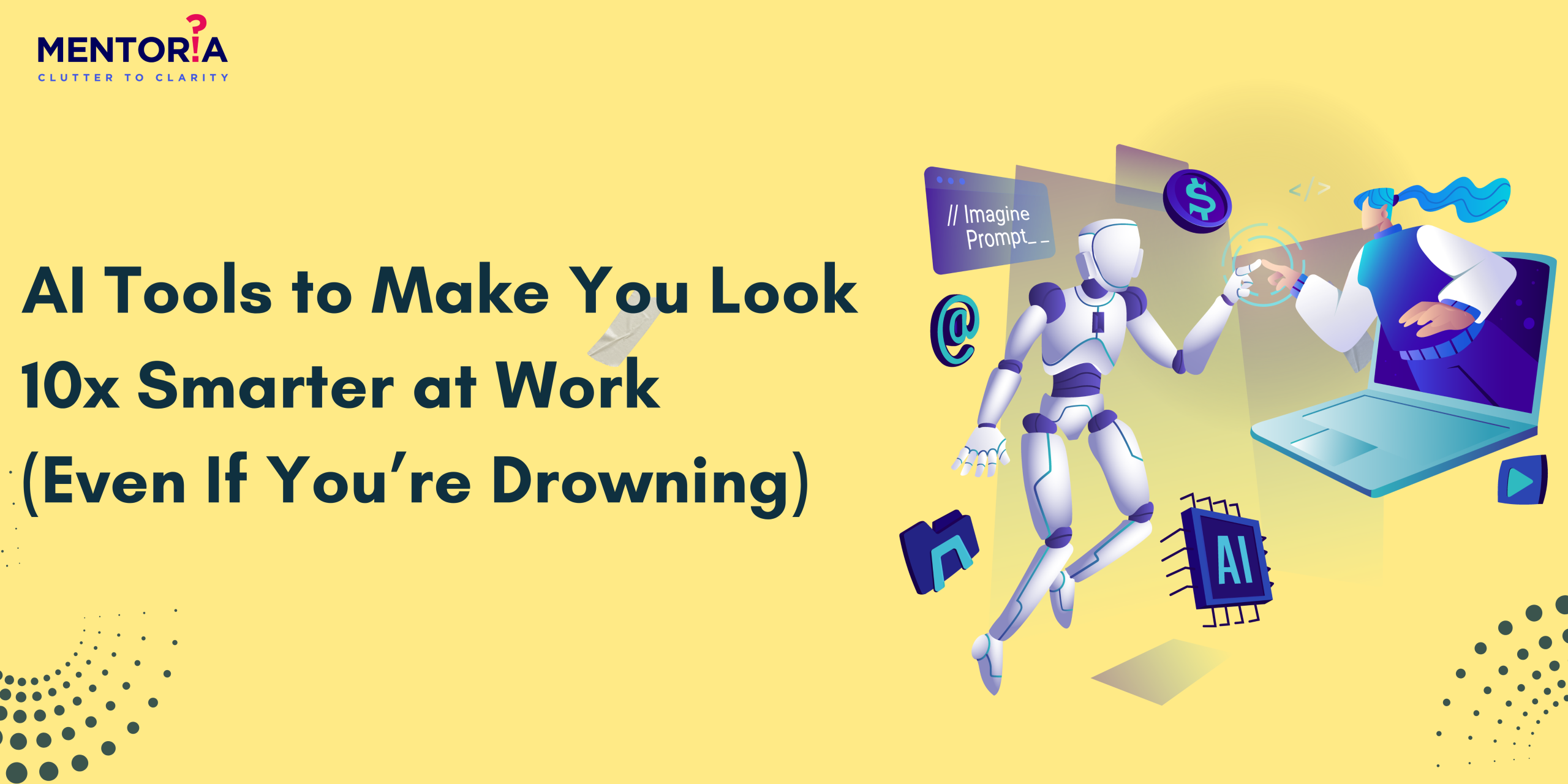6 Career Paths That’ll Make You Rethink Your 9 to 5

Ever stop to ponder about your dream career? You know, the one that makes your heart skip a beat and your imagination run wild? For most, it’s the classic choices like Doctor, Engineer, or Scientist that come to mind first. But hey, have you ever considered a career as a Digital Nomad Consultant or a Virtual Reality Developer?
Sounds intriguing, right?
Well, hold on to your hats because we have curated top 6 non-traditional or as we say “out of the box” career pathways for you – to inspire your journey beyond the ordinary.
Virtual Event Planner
A virtual event planner is responsible for organising and managing online conferences, webinars, trade shows, and virtual team-building events for companies, educational institutions, and non-profit organisations.
- Skills Required: Strong organisational skills, attention to detail, creativity, communication skills, and proficiency in event management software.
- Resources: Online courses such as the “Event & Meeting Planning Course” on Coursera and the “Virtual Event Planning Masterclass” on Udemy offer comprehensive training in virtual event planning. Books like “The Art of Virtual Events” by Michael Doyle and Virtual Event Excellence” by Margaret Johnston-Clarke are also valuable resources.
- Applicability: With the increasing demand for remote events, virtual event planners play a crucial role in ensuring seamless and engaging online experiences for attendees. For example, a virtual event planner organises an online product launch event for a global tech company, ensuring seamless live streaming and attendee engagement.
Digital Nomad Consultant
A digital nomad consultant provides guidance and support to individuals and businesses seeking to embrace the digital nomad lifestyle – a way of living where individuals leverage technology to work remotely while travelling and living in different locations around the world.
- Skills Required: Adaptability, time management, self-discipline, problem-solving, communication skills, and proficiency in remote work tools.
- Resources: Online courses like “Become a Digital Nomad” on Udemy and the “Remote Work and Travel Course” on Nomad University provide guidance on becoming a digital nomad. Books like “The 4-Hour Workweek” by Timothy Ferriss and “Remote: Office Not Required” by Jason Fried and David Heinemeier Hansson provide valuable insights.
- Applicability: A digital nomad consultant could advise individuals and businesses on remote work opportunities, travel logistics, budgeting, and lifestyle design, helping them achieve location independence. For instance, A digital nomad consultant advises a freelance graphic designer on remote work opportunities and recommends co-working spaces in digital nomad hotspots.
Content Creator
With the rise of social media and digital marketing, content creators produce engaging and informative content across various platforms.
- Skills Required: Strong writing skills, creativity, content strategy, SEO knowledge, proficiency in multimedia tools like Adobe Creative Suite or Canva, and social media marketing expertise.
- Resources: Online platforms like HubSpot Academy offer courses on content creation and marketing. Blogs like Copyblogger and Moz provide valuable tips and insights into content creation and SEO.
- Applicability: Content creators produce engaging and informative content for online platforms, including blogs, social media, videos, and podcasts. For example, a content creator for a digital marketing agency may create blog posts, infographics, and videos to educate audiences about industry trends and promote client services.
Cybersecurity Analyst
With the growing threat of cyber attacks, cybersecurity analysts protect organisations’ digital assets and sensitive information.
- Skills Required: Knowledge of networking protocols, threat detection and prevention, incident response, cryptography, ethical hacking techniques, and proficiency in cybersecurity tools like Wireshark or Metasploit.
- Resources: Websites like Cybrary and Coursera offer courses on cybersecurity fundamentals and advanced topics. Books like “The Web Application Hacker’s Handbook” by Dafydd Stuttard and Marcus Pinto provide in-depth knowledge of web security.
- Applicability: Cybersecurity analysts monitor network activity, investigate security incidents, and implement preventive measures to safeguard sensitive information. For instance, a cybersecurity analyst working for a financial institution may conduct regular security assessments and recommend security enhancements to protect customer data.
Sustainability Specialist
As businesses focus more on sustainability, specialists in this field help companies reduce their environmental impact and adopt sustainable practices.
- Skills Required: Understanding of environmental issues and regulations, data analysis, project management, stakeholder engagement, and expertise in sustainable practices like renewable energy and waste reduction.
- Resources: Organisations like the Sustainable Business Network (SBN) offer training programmes and resources for sustainability professionals. Websites like GreenBiz and the United Nations Sustainable Development Goals provide valuable insights into sustainability initiatives.
- Applicability: Sustainability specialists help businesses and organisations adopt environmentally friendly practices and reduce their carbon footprint. They develop sustainability initiatives, conduct environmental assessments, and implement strategies to achieve sustainability goals. For example, a sustainability specialist working for a manufacturing company may implement energy-efficient technologies and promote recycling programmes to minimise environmental impact.
Virtual Reality Developer
With the increasing use of virtual reality in various industries, developers create immersive experiences for gaming, training, and more.
- Skills Required: Proficiency in programming languages like C# or C++, 3D modelling and animation, game development principles, spatial computing, and familiarity with VR hardware and software development kits.
- Resources: Online platforms like Unity Learn and Unreal Engine offer tutorials and courses on virtual reality development. Books like “Unity Virtual Reality Projects” by Jonathan Linowes and “Learning Virtual Reality” by Tony Parisi provide comprehensive guides to VR development.
- Applicability: Virtual reality developers leverage VR technology to create interactive content that enhances learning, collaboration, and entertainment. For instance, a virtual reality developer may design a VR training programme for medical students to practise surgical procedures in a realistic virtual environment.
How Mentoria Can Help
Mentoria offers personalised career guidance and coaching to individuals exploring non-traditional career paths. Our experienced mentors provide valuable insights, advice, and support tailored to your unique aspirations and goals. Whether you’re considering a career change, transitioning to a new industry, or starting your own venture, Mentoria can help you navigate the challenges and opportunities ahead. For more insights and tips on non-traditional careers, be sure to check out the blogs and resources on the Mentoria website. With Mentoria’s support and guidance, you can confidently pursue non-traditional career paths and achieve your professional goals. Embrace the opportunities that lie ahead and embark on a rewarding and fulfilling career journey with Mentoria by your side.






